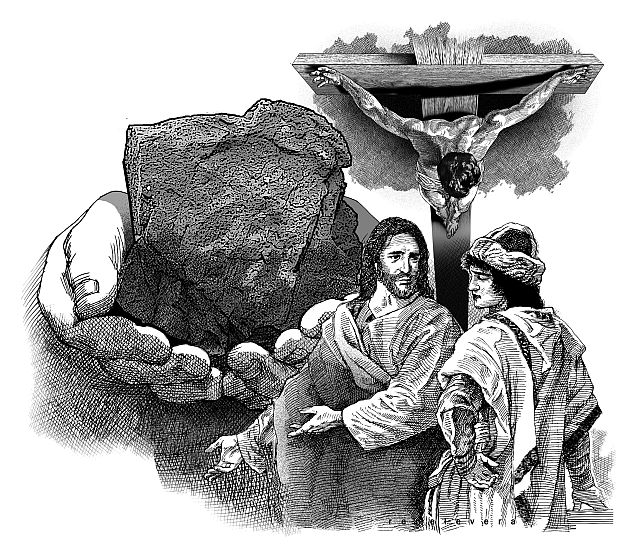Whenever I think of John the Baptist, a friend’s account of a low, perhaps the lowest, moment in his life comes to mind. Through sheer dedication to duty he attained financial success in middle age, and along the way acquired several prized properties. Although his work kept him away most of the time, he managed to maintain a tranquil and gracious family life.
Usually, when a piece of writing begins in this manner, in the next breath it narrates something untoward, an unexpected and upsetting incident. This one does. One night, while in the field, our man awoke and sat up after seeing in a dream his wife lying dead. All this turned out ominous. Indeed, not long after that, he received a call that she had died, stabbed by a drug addict who had broken into their house.
Shortly thereafter, his child (I cannot recall exactly what – he recounted this many years ago, and because of the nature of his experience I did not want to check the details with him and come out ghoulish). Anyway, a dear one got terribly sick and was at death’s door. This last proved too much for the man – he spent the time in a state of daze and bewilderment, not eating, speaking very little, and aimlessly walking the streets.
Again, when the writing gets so serious as this, it usually heralds a turnaround. And the turnaround came when, one morning, while he was cruising, disturbed and unfed, near a park in an uptown area, a piece of rock fell in front of him, almost hitting him. When something like this happens, even a somnambulist has to pay attention, and so our man looked around and saw someone, a tramp, dirty and ragged, and he felt it in his bones that the guy had thrown the missile at him. Clearly deranged, the vagrant, who had a gorilla grin and flashing eyes, seemed to say to my friend, “Eat, or else join me in this squalid, cuckoo life of the unwashed and homeless.”
The thought sent shivers down his spine, and pushed him into a nearby fast food outlet where he ate his first meal in many days. After which, having his wits about him again, he shaved, took a bath, and returned to the hospital to take care of his ward. He considered the incident as his reentry into normalcy and the grace of God, whom he had forgotten in the time of comfort and plenty.
I feel that in terms of appearance, John the Baptist, who wore a garment of camel hair and ate locusts and wild honey, did not much differ from the tramp.
But, of course, the similarity ends there, because John was possessed of a prophet’s lucidity and competence to convey God’s message, such that when the people asked him what they should do, he was ready with this piece of advice, “Whoever has two cloaks should share with the person who has none. And whoever has food should do likewise.” To the tax collectors, he said, “Stop collecting more than what is prescribed,” and to the military men, “Do not practice extortion, do not falsely accuse anyone, and be satisfied with your wages.”
The people in the days of John needed to change, as did my friend, because the refusal to do good amounts to a refusal to honor and protect life, which loses its meaning, not only when one refuses to eat, and to take care of oneself, but also when one ignores the equal dignity of others, because every man forms part of humanity, just as the hands, feet, mouth and all the other parts constitute just one human body.
And, of course, the tramp conveyed his message of change to my friend, not with words, but with a piece of rock. In which it could happen that the reader might see more, if he or she is familiar with the hymn, “Rock of Ages,” a phrase that refers to Christ, of which hymn the first two lines are as follows:
“Rock of Ages, cleft for me,
Let me hide myself in Thee.”
Disclaimer: The comments uploaded on this site do not necessarily represent or reflect the views of management and owner of Cebudailynews. We reserve the right to exclude comments that we deem to be inconsistent with our editorial standards.

